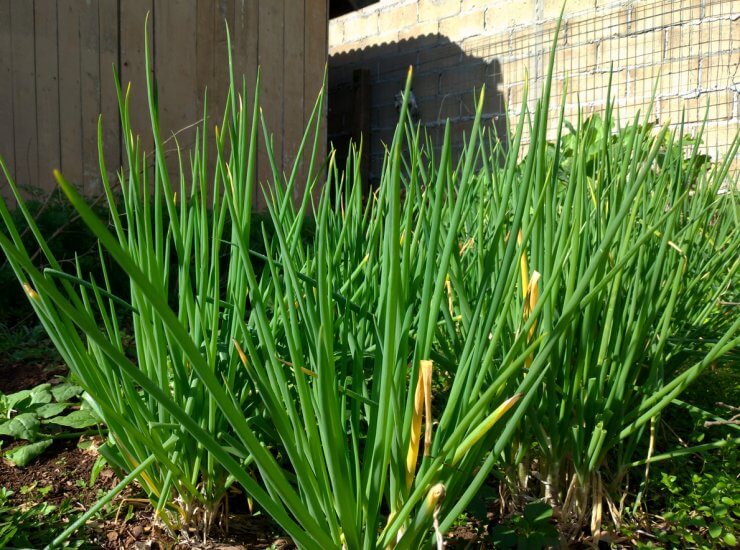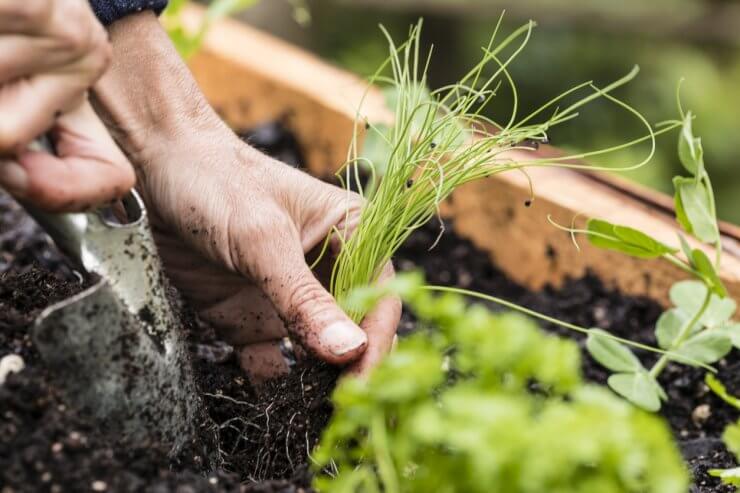
Chives growing in open ground
Chives like a full day of sun—six to eight hours. They’ll do OK in partial shade, too, but you are likely to get fewer flowers that way.
The soil should be well-drained and rich in organic matter to a depth of 6 to 8 inches. Sandy loam soil is best. Do your plants a favor and be sure to mix in some aged compost before you plant them.
In general, chives prefer a soil pH of 6.0 to 7.0, although you may see some varieties that will tolerate soil in a higher or lower range. Take out the guesswork and get your soil tested before you start planting. You’ll save yourself a lot of time and aggravation, and your plants will thank you by growing instead of languishing. Your local extension center will have information on how to get your soil tested. For a little bit of preparation work, you can get a lot of information about the composition of your soil.
When it comes time to plant your chives, almost anywhere with the right sun and soil will do. While most chives grow best in zones 3 to 9, if you live outside those zones, you can grow chives on a windowsill year-round or in containers outside while conditions are right; then you can bring them inside.
The recipe for healthy chives is sunlight, well-drained soil, and warm temperatures. If you can provide those three things, you can grow chives just about anywhere.
Raised beds and open ground

Planting chives in raised garden bed
A raised garden bed or planter is an excellent option for growing chives if you don’t have soil that’s ideal for chives (heavy clay soil, for example). Raised beds also help with drainage, which is essential for healthy chive plants. You can even buy raised beds or build one yourself to fit your space. Planters should have holes in the bottom of the container and a drip tray underneath to guard against overwatering.
Watering and weeding will be easier if you have your chives in a raised bed or planter. It’s a good alternative to growing in open land. And if you fill a raised bed with packaged garden soil, you know you’re providing a cleaner and healthier environment for your plants from the outset.
Packaged garden soil means less weeding than you’d have from digging a hole in the ground; and with a raised bed or container, there’s less bending down to do your weeding!
Chives are easygoing plants, and they’ll grow well in open ground—as long as they have plenty of sunshine, good drainage, and the right pH (6.0 to 7.0). If you’re lucky enough to live in a zone where your chives can live outdoors year-round, consider incorporating chives into your garden (you can always bring some in for the winter).
If you do plant your chives outside, keep in mind that they are prolific reseeders. If you don’t want to have to wrangle an ever-growing, denser patch of chives, appreciate the flowers when they appear—then deadhead them before they go to seed. And keep in mind that the flowers are delicious as a garnish and in salads.
How do you grow your chives—in open land, in raised beds, or in containers? Why do you prefer your method? Please tell us your tips and tricks for growing great chives!


 Previous
Previous

